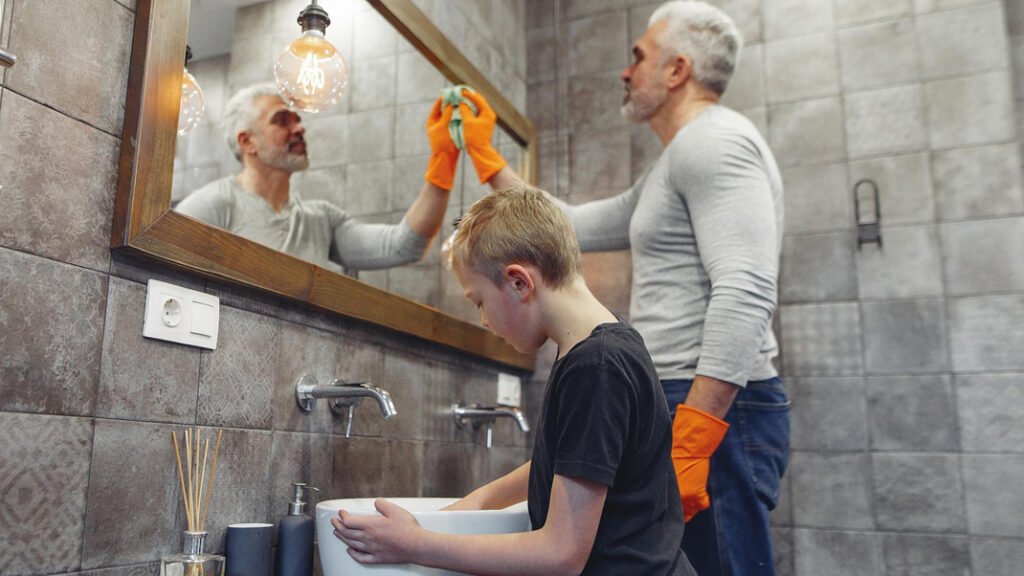The Paradox of Privilege: Raising Resilient Kids in a Comfortable Life

As parents, we want to give our children the best—opportunities, experiences, and security. And for Third Culture Kids (TCKs), life often is extraordinary. They grow up in different countries, attend elite schools, travel extensively, and sometimes even have household staff or personal drivers. From the outside, it looks like a charmed life.
But here’s the challenge: When children rarely struggle, how do they develop resilience? When success comes easily, how do they learn persistence?
The truth is, resilience isn’t built in comfort. It grows through adversity—through setbacks, failures, and the process of overcoming challenges. Yet, in a life full of advantages, those struggles don’t always happen naturally. And that’s where intentional parenting comes in.
This isn’t about taking away privilege or manufacturing hardship for the sake of “toughening up” our kids. It’s about making sure they develop the internal strength to handle life’s inevitable difficulties—the failed test, the lost friendship, the rejection letter, the moments when privilege isn’t enough.
So, how do we raise kids who are both fortunate and resilient? How do we ensure they grow up prepared for a world that won’t always cater to them?
🔹 Over the next 7 days, I’ll send you one simple, actionable strategy per day to help build resilience in your child. Each lesson will focus on a key skill—from embracing failure to taking responsibility to developing true grit.
✨ Want to raise a strong, adaptable child? Sign up below for the free 7-day challenge! ✨

Why Struggle is Essential for Growth
Let’s be honest—no parent wants to see their child struggle. And when you have the means to make their lives easier, it’s tempting to step in. Who wouldn’t want to help their child succeed?
But here’s the problem: When kids never face struggle, they don’t learn how to handle it.
Research shows that children need to experience manageable amounts of stress and adversity to develop coping skills. Dr. Angela Duckworth, author of Grit: The Power of Passion and Perseverance, found that grit and perseverance—not intelligence or privilege—are the biggest predictors of success. Kids who push through challenges build confidence and resilience that will serve them for life.
🔹 The result of too much ease? Kids who panic when things don’t go their way. Teens who give up when something is hard. Young adults who expect problems to be solved for them rather than figuring out how to solve them themselves.
🔹 What they need? Intentional opportunities to struggle in a safe, supported way—where they learn how to work through challenges instead of avoiding them.

The Solution: Intentional Resilience Building
Raising resilient kids in a privileged world doesn’t mean taking away their advantages—it means ensuring they can handle life’s inevitable setbacks.
The good news? Resilience can be taught. You don’t have to wait for life to throw them curveballs—you can create opportunities for growth right now.
What You’ll Learn in the 7-Day Email Series
Each day, you’ll get a short, practical lesson with one actionable strategy to help your child build resilience. Here’s a sneak peek:
📬 Day 1: Encourage Effort Over Outcomes – Teach kids to value hard work rather than relying on talent, privilege, or easy success.
📬 Day 2: Create Challenges on Purpose – Let them struggle (in a good way). Give them tasks they have to figure out on their own, from carrying their own luggage to solving real-world problems.
📬 Day 3: Teach Financial Responsibility – Even in a wealthy household, kids should have budgets and financial limits to develop smart money habits.
📬 Day 4: Require Contribution to the Household – Even with staff, kids need responsibilities. Whether it’s cooking one meal a week, doing their own laundry, or organizing a project, contribution builds confidence.
📬 Day 5: Expose Them to Different Realities – Privilege can lead to entitlement—or empathy. Community service, cultural exchanges, and volunteering broaden their worldview.
📬 Day 6: Normalize Failure – If kids never fail, they never build grit. We’ll cover how to reframe mistakes as learning opportunities.
📬 Day 7: Foster Self-Sufficiency – Teaching kids life skills (cooking, public transport, decision-making) so they can thrive in the real world.
✨ Want the full breakdown? Sign up for the free 7-day challenge and get practical, real-world strategies for raising resilient kids—even in a world of privilege. ✨
Conclusion: A Privileged Yet Resilient Life

Privilege and resilience don’t have to be opposites. Our kids can grow up with opportunity and strength—but only if we parent with intention.
🔹 Research confirms that resilience—not privilege—is the best predictor of success. Studies by Dr. Carol Dweck (Mindset) and Dr. Angela Duckworth (Grit) emphasize that children who are taught to persist through challenges, work hard, and handle failure effectively grow into confident, capable adults.
🔹 Raising strong, capable kids isn’t about denying them their advantages—it’s about making sure they know how to work hard, face setbacks, and navigate life’s challenges with confidence.
🔹 The best part? You don’t have to figure it out alone.
✨ Join the 7-day challenge today and start raising a resilient Third Culture Kid. ✨







